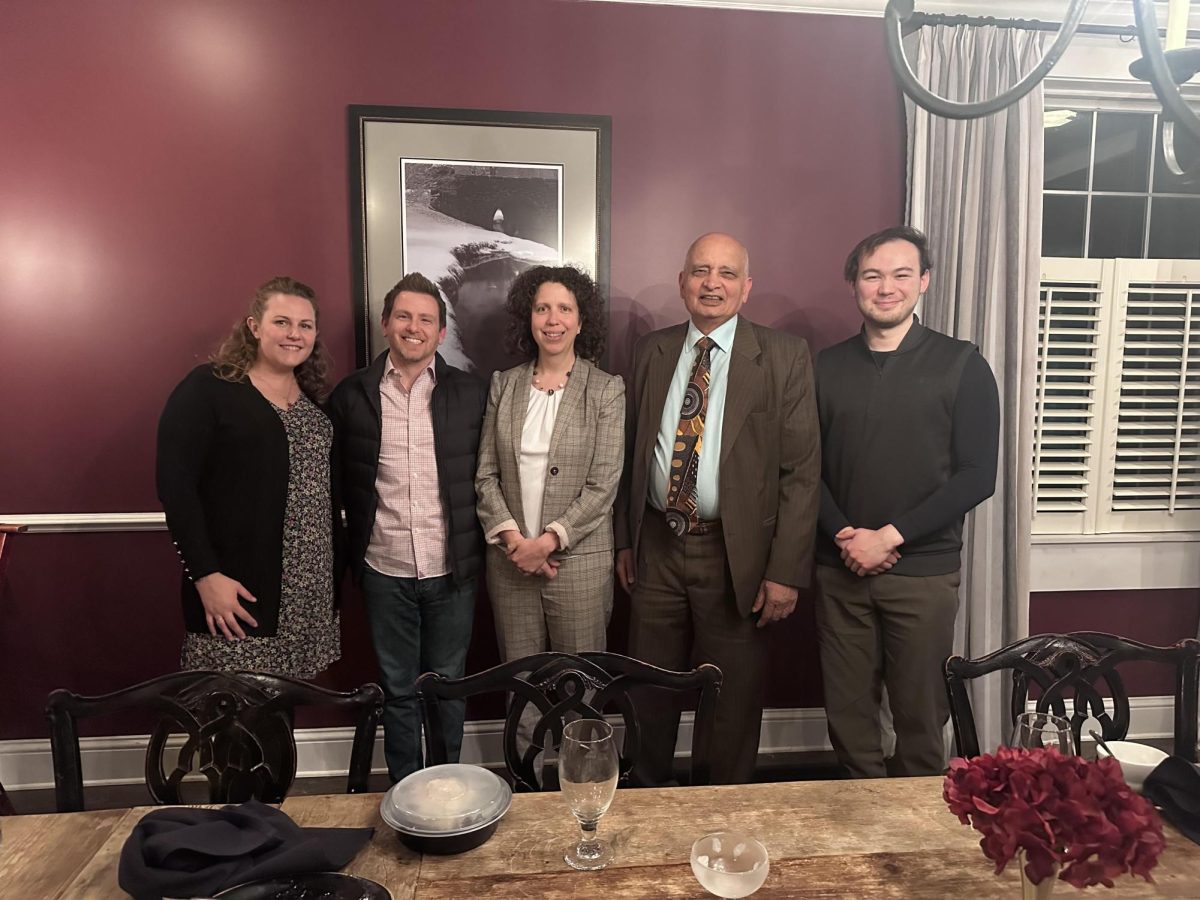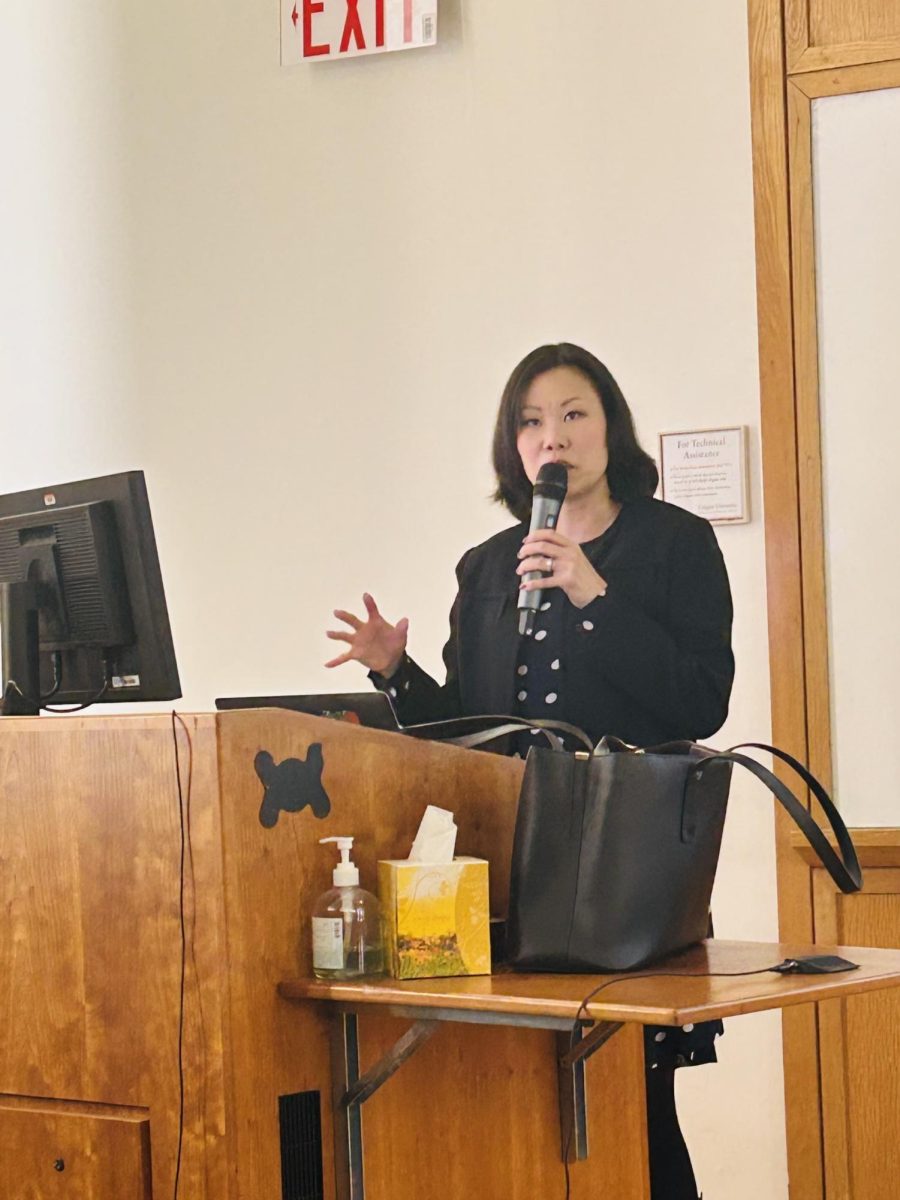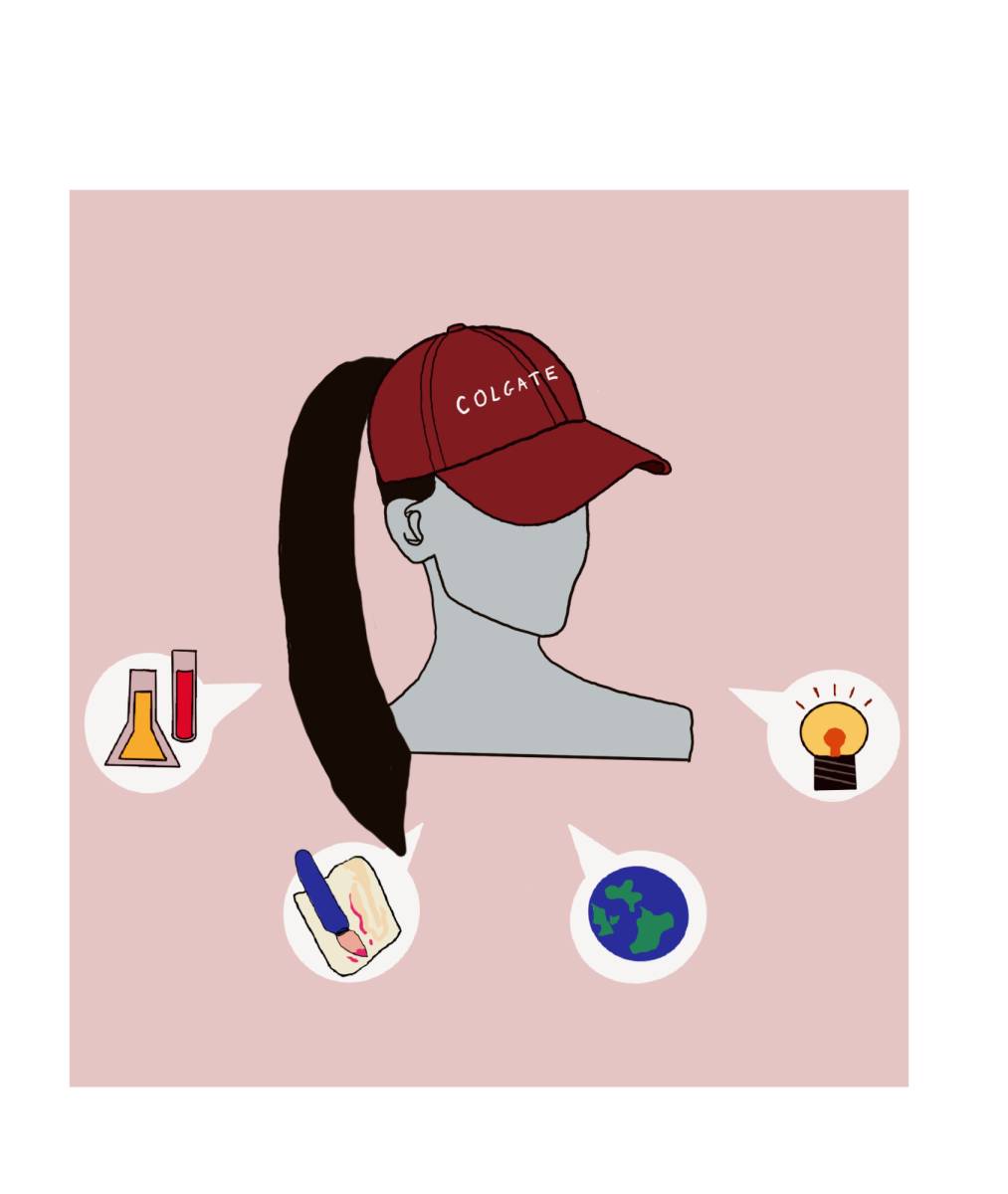Due to policy changes by Colgate University’s Academic Affairs Board, some students who studied abroad during the 2022-2023 academic year experienced difficulty receiving four class credits. The policy stated there needs to be a minimum of 16 course hours to receive the full four course credits, according to the Office of the Registrar.
Associate Provost for Institutional Analysis and University Registrar Neil Albert discussed the policy change.
“The equivalency process was changed by the Academic Affairs Board following a series of discussions during the 2020-2021 academic year. When the proposal was approved in the Spring of 2021, the rollout was phased because of the long lead time for many transfer credit opportunities. This policy and the rollout process were part of the 2021-2022 [Colgate] University Catalog, and the policy has appeared in the Catalog since,” Albert said. “Generally, this change is intended to improve the clarity of Colgate’s transfer credit awards. In the current system, the amount of Colgate credit a student will receive is based on the amount of credit awarded by the school they attended. That said, this is a change, and change takes time.”
Some of Colgate’s approved programs make it harder for students to receive four transfer credits at Colgate.
“Any program which offers students the opportunity to complete 15 semester hours of work will be difficult for students. Many programs offer students the ability to earn 15-17 or 15-19 semester hours, so students can earn at least four on those programs. That said, some do impose a limit of 15 semester hours of coursework. It is this last group that is most challenging for students who really do need to earn exactly four credits each term to complete on time,” Albert said.
Many students only received 3.75 credits instead of their expected four credits this past year.
“Those students who only earned 3.75 credits on an approved program last year, and are now behind the traditional pace of four credits per term as a result, are being invited to complete an additional 0.25 credit course with Colgate’s Provost and Dean of Faculty, Prof. Lesleigh Cushing, from Religion and Jewish Studies, this Fall. The course will focus on the off-campus experience and the ways in which such experiences can be better integrated into students’ Colgate experiences,” Albert said.
Senior Monique Dupree traveled abroad on an approved program to Copenhagen, Denmark, in Spring 2023 through DIS.
“Because of the credit conversion, I have to take a 0.25 credit class in the Spring,” Dupree said. “I am really upset about this. If I was aware that I would not get full credit, I would have planned to take this at another time rather than my last semester at Colgate. I talked to my advisor to try to get this overridden, but he said that there was nothing he could do and it was up to the registrar. I think the thing that is the most frustrating is that Colgate did not tell us that they were changing the policy. I had friends who completed the same program a year earlier and received full credit. If they had told us this would be the case, I would have planned to take this 0.25 course at an earlier time.”
Senior Nicole Arnone completed the DIS Copenhagen program in Fall 2022. While Arnone also expected to receive four credits, she does not have to take a 0.25 course because she has outside credits.
“Through DIS, the process of receiving credit for the program was quite easy and hands-off on my side. However, I do not think the details of what I had to complete in order to be awarded the credit was communicated clearly. The process of completing forms for the registrar and study abroad departments were confusing at first, although the process did become easier upon some trial and error. I also felt as though I had a plethora of resources to help with any confusion I may have had,” Arnone said.
Dupree also felt that the process of registering and receiving course credit was difficult.
“I found the process of receiving credit from my abroad program pretty complex, especially if you are taking courses towards your major requirements. For the political science major you only get preliminary approval so the process is very long,” Dupree said.
Despite the credit conversion difficulties, the DIS Copenhagen program will remain an approved program for students.
“At this moment, the Office of Off-Campus Study has no plans to remove the programs from the approved list,” Director of Off-Campus Study Joanna Holvey Bowles said.
Senior Max Rubinstein went on a Colgate Study Group to Manchester, England, in Fall 2022. Rubinstein felt the pre-departure process was organized and helpful, but receiving credit after the program was confusing.
“My program manager was very clear about the type of courses and the number of courses I was required to take in order to receive the full semester credit. I was sent multiple emails and various communications about the credit transfer process while picking my international courses. It seemed like the credit process was very clear on how I would successfully receive the credits,” Rubinstein said. “It was when I came back to school in the spring that all of a sudden, communications about my credits were no longer being communicated clearly. While I was under the impression that the courses I took would earn the full four credits, when I returned, I was told that the instruction I received was incorrect and I would be penalized for it.”
Rubinstein was eventually able to receive all four credits.
“I was fortunate enough to express my concerns with Associate Dean of the Faculty Dean Baptiste, who graciously granted me the four credits. I feel lucky that I was able to correct this issue, but it is very frustrating that I had to go through such extreme lengths to receive credit that should have been figured out before even going on the trip,” Rubinstein said.
Albert explained how students can ensure they will receive four credits.
“The processes in place in the Registrar’s Office are designed to ensure students are making informed plans. Completing the pre-departure paperwork should be all that a student needs to do to understand the number of credits they will be awarded upon successful completion of their courses abroad,” Albert said. “Based on the feedback from some of the students who were surprised by their credit award, we are modifying the content of the approval messages to emphasize the credit award. That will be in place for students who will soon be completing their pre-departure approvals.”
Albert said that the policy changes were communicated to students, but the Office of the Registrar is trying to find ways to communicate further with students.
“The information regarding credit award was communicated in advance. The Registrar’s Office is modifying the approval notices to make the credit award harder to miss, and we are considering if there are ways that we can show the potential credit to be earned when a student looks at their registration record for their term on an approved program,” Albert said. “Anyone with other suggestions can send them to us at [email protected], or stop in to 107 Lathrop. We are always here to help to the best of our ability.”
Editor’s Note: A previous version of this article incorrectly stated that the new transfer credit policy requires 15 course hours to earn four credits. The Office of the Registrar has clarified that 16 semester hours are required.














